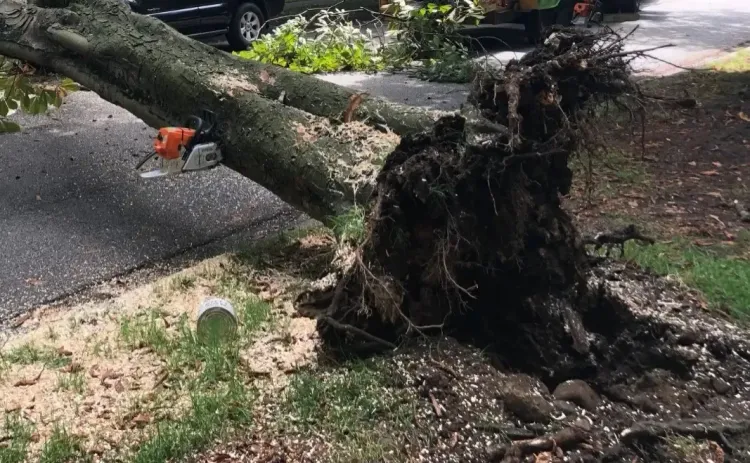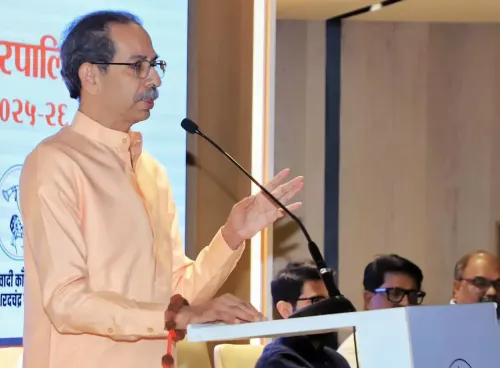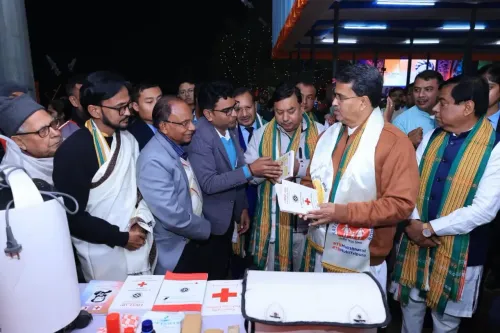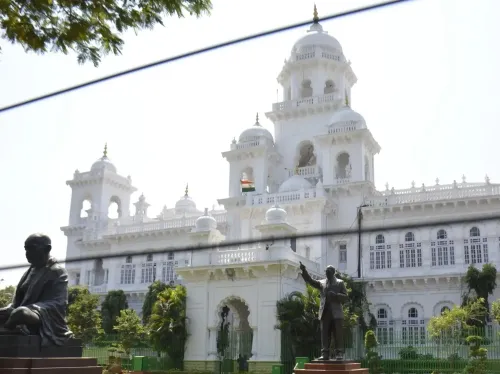Tragic Incident in Tripura: Two Workers Lose Lives as Tree Falls

Synopsis
Key Takeaways
- Two workers have tragically lost their lives.
- The incident occurred during work on a check dam.
- The victims were part of the MGNREGA scheme.
- Compensation has been issued to affected families.
- The MGNREGA aims to provide wage employment.
Agartala, April 16 (NationPress) Tragically, at least two workers, including a woman employed under MGNREGA, lost their lives, and two others sustained serious injuries when a large tree was uprooted and collapsed upon them in the mountainous Dhalai district of Tripura on Wednesday, according to officials.
An official from the district administration reported that the tree fell on the workers while they were engaged in digging a check dam on government property under the Mahatma Gandhi National Rural Employment Guarantee Act (MGNREGA) at Nailafabari within the Ambassa block of Dhalai district.
A check dam is a small structure built across a stream, ditch, or channel to mitigate erosion and manage water flow. These structures are commonly utilized in agricultural settings, hilly areas, and arid regions.
According to the official, Robert Malsum (22) died instantly, while three other injured workers – Juhi Rani Malsum (26), Surjyasa Malsum (35), and Jagat Bhakta Malsum (5) – were promptly taken to a government hospital, where Juhi Rani later succumbed to her injuries during treatment.
The authorities from the Ambassa block have provided initial compensation to the families of the deceased and injured workers.
The MGNREGA was established as a legislative measure in Parliament to provide a statutory framework for the scheme. Its primary goal is to enhance livelihood security in rural regions by ensuring at least 100 days of guaranteed wage employment per financial year for every household with adult members willing to undertake unskilled manual labor.
The scheme aims primarily to increase wage employment, with a secondary goal of improving natural resource management through projects that tackle the root causes of chronic poverty such as drought, deforestation, and soil erosion, thereby promoting sustainable development.
Implementation of the scheme involves a cooperative effort between the Central and state governments, as well as the Panchayati Raj Institutions.
For the northeastern states, the Central government covers 90% of the costs for employment provided under this initiative, with the remaining 10% funded by the state. The execution of the scheme is diligently overseen at both the state and district levels.










